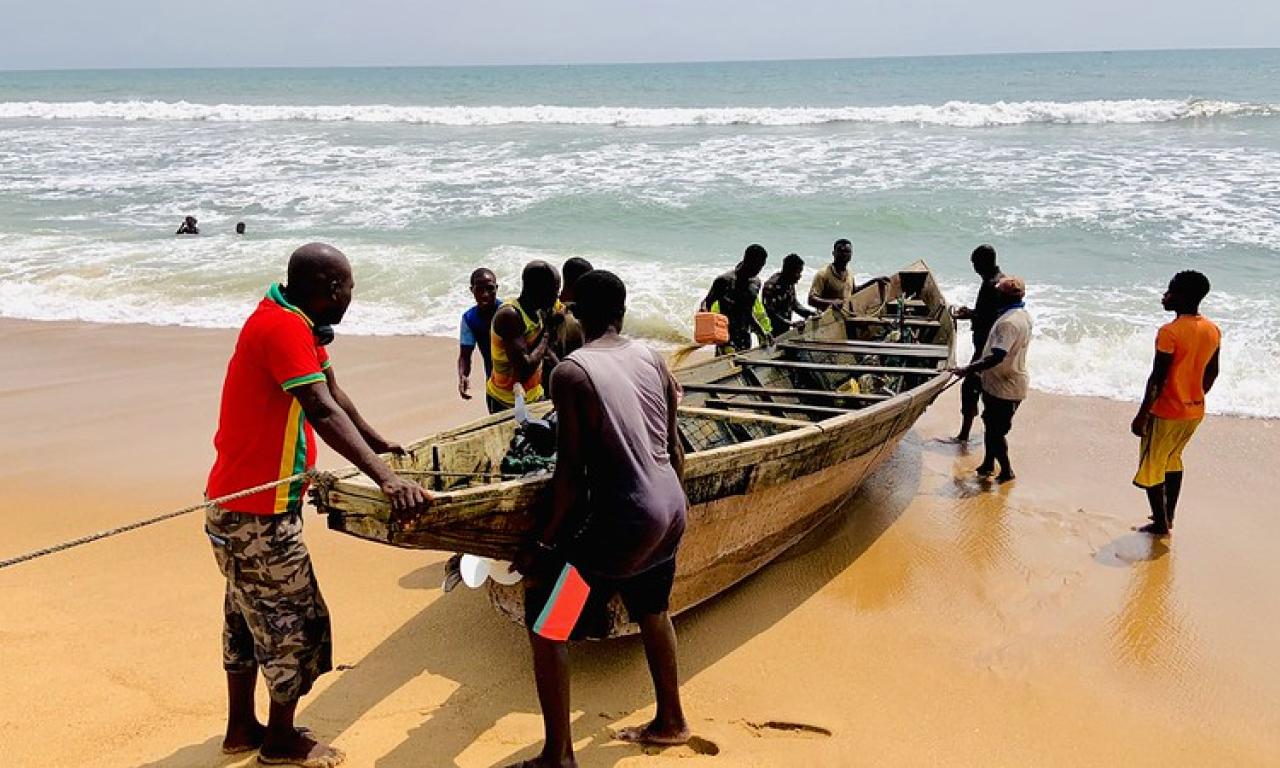
Investing in African aquaculture is not just about unlocking a new frontier with enormous potential, but it is also about addressing the pressing challenges of today, Essam Yassin Mohammed and Lindiwe Majele Sibanda write.
With a water border three times greater than its landmass, the African continent is prime territory for fishing and aquaculture and all the benefits this brings for nutrition, livelihoods and economic growth.
Yet the vast majority of fish and seafood produced in Africa comes from Egypt, with all other countries accounting for just 6.6% of global production.
Nigeria imports almost half of its fish supply to meet rising demand despite being Africa’s second-largest aquaculture market.
Asia, by comparison, produces almost half of global production, without even counting China, the top producing country.
After the African Union’s Trade Commissioner made clear during the G7 Summit that the continent would no longer accept a one-way relationship with the world’s largest economies, supporting the development of African aquaculture is an opportunity for the EU and partners to help realise untapped potential for shared prosperity.
Africa's aquatic foods sector remains unutilised
An additional investment of about €11.1 billion in Africa’s aquaculture sector would generate an estimated revenue of €19bn and jobs for 58 million people in 2050.
Sustainably increasing the supply of aquatic foods could also make them affordable enough to prevent some 166 million micronutrient deficiencies around the world by 2030.
Malnutrition is particularly severe in sub-Saharan Africa, with almost a quarter of its population undernourished.
The need is made even more critical by the disproportionate impact of climate change that Africa faces, adding pressure to all aspects of its food production.
The need is made even more critical by the disproportionate impact of climate change that Africa faces, adding pressure to all aspects of its food production.
Over the weekend, the EU joined other G7 economies by committing to the Hiroshima Action Statement for Resilient Global Food Security, as well as pledging to deliver €560bn for infrastructure projects in developing countries.
Growing and inspiring an underutilised sector in Africa, such as aquaculture, provides an opportunity to make good on both.
Lessons could be learned from Asia
The EU has already recognised the benefits of investing in sustainable fisheries and aquaculture for Africa with its €40 million FISH4ACP initiative.
But the route towards more equitable economic development, as well as nutritionally diverse and resilient food systems, is made considerably more achievable thanks to the lessons of Asia’s aquaculture sector.
Efforts to increase South-South cooperation and innovation are already underway, with the recently launched UK-backed Asia-Africa BlueTech Superhighway program aimed at strengthening aquatic food systems in Africa and Asia.
Tools and solutions that have driven the growth of Asian aquaculture and fisheries can also benefit Africa, such as improved breeds of common species, including Nile tilapia, carp and catfish.
But many more opportunities exist for the EU to support greater collaboration across the Global South, especially under the Japanese presidency of the G7.
For example, tools and solutions that have driven the growth of Asian aquaculture and fisheries can also benefit Africa, such as improved breeds of common species, including Nile tilapia, carp and catfish.
While originally native to Africa, genetically improved tilapia varieties that grow up to 85% faster and need fewer resources have been developed by WorldFish scientists with funding from the EU — a breakthrough that is now starting to go full circle to benefit African producers.
Having been introduced and farmed in the Philippines, Bangladesh, China, Thailand and Vietnam, these varieties can be adopted by African producers with confidence in benefits ranging from increased output to a 36% lower impact on the environment compared to conventional breeds.
Gender-transformative approaches could help, too
Another opportunity for compounding South-South benefits is the development and widescale adoption of integrated and sustainable production systems, such as rice-fish systems.
Both commodities play a key role in African and Asian diets, food sectors and economies, and practices tried and tested in one region can be customised for the other. Such an approach can streamline innovation and reduce the risk of failure.
Learnings from Africa can help Asia to increase the empowerment of women in the sector, leading to increased productivity, efficiency and innovation.
Finally, facilitating a greater exchange of knowledge between Asia and Africa can improve the capabilities of both, with training and education programs, technical assistance, and mentoring and coaching all ways to improve the skills of local actors in the sector.
In particular, gender transformative approaches can help close the gender gap in food systems.
Learnings from Africa can help Asia to increase the empowerment of women in the sector, leading to increased productivity, efficiency and innovation.
WorldFish has already piloted such approaches in Bangladesh and Zambia, which increased women’s participation in fishing from 5% to 75%.
Africa could become another big fish with help from Brussels
Investing in African aquaculture and fisheries is not just about unlocking a new frontier with enormous potential, but it is also about addressing the pressing challenge of climate change, creating shared prosperity, and tackling malnutrition for millions of people.
With support from the EU and the rest of the international community ... Africa, too, can become another big fish in a big pond.
###
This post originally appeared on Euronews and was written by Essam Yassin Mohammed and Lindiwe Majele Sibanda.
